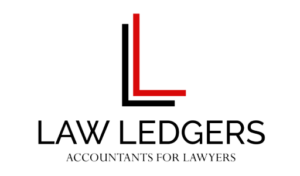Protecting Your Law Firm from Fraudulent Checks: Strategies and Best Practices
Introduction
In today’s fast-paced legal environment, law firms must remain vigilant to protect their financial interests. Fraudulent checks have become increasingly prevalent, causing substantial losses for businesses that fall victim to this type of scam. Law firms are no exception. To safeguard your firm’s financial health, it is crucial to implement specific strategies and practices to minimize the risk of fraudulent check transactions. In this article, we will explore various ways to avoid fraudulent checks, provide practical examples, and offer a list of best practices.
Employee Training and Awareness
The first line of defense against fraudulent checks is a well-informed and vigilant workforce. Make sure your employees are aware of the risks and know how to identify potential fraud. Conduct regular training sessions to keep your team up to date on the latest scams and techniques. For instance:
a. Teach employees to recognize unusual check features, such as altered fonts, incorrect routing numbers, or mismatched account holder names.
b. Train your staff to be cautious of high-dollar checks from unfamiliar sources, particularly those that require immediate payment or deposit.
c. Encourage employees to report any suspicious activity to a supervisor or manager.
Employees should be trained to spot and report any suspicious activity or anomalies that may suggest fraudulent intent. Here are some examples of such red flags:
- Unexpected Checks: If your firm receives a check from an unknown source or for an unexpected amount, it should be regarded as suspicious. This is particularly true if the check is for a large sum.
- Pressure to Act Quickly: If a client or other party is exerting unusual pressure to quickly deposit a check or to disburse funds from a check that has not yet cleared, this may indicate fraud.
- Mismatched Details: Check details that do not match or seem altered, such as inconsistent fonts or colors, misspelled words, or a signature that does not match the account holder’s name, can be signs of a fraudulent check.
- Inconsistent Communication: Communication that is inconsistent or does not align with typical client behavior can be suspicious. This includes urgent requests or demands, irregular email addresses, or unprofessional language.
- Changes to Payment Arrangements: Any sudden or unexplained changes to normal payment arrangements should be investigated. For example, a client who typically pays via wire transfer suddenly insisting on paying by check could be a sign of potential fraud.
- Irregular Check Numbers or Dates: Check numbers that are non-sequential or dates that are in the future or far in the past can be signs of a fraudulent check.
- Discrepancies in Magnetic Ink Character Recognition (MICR) Line: The MICR line, located at the bottom of checks, contains the bank routing number, account number, and check number. If the numbers appear smeared, are not aligned properly, or have a different font, the check might be fraudulent.
- Issues with the Bank’s Information: If the bank’s name or address is missing, appears incorrect, or if the bank does not exist, it’s a clear sign of a fraudulent check.
Remember, when in doubt, it’s always better to err on the side of caution and report any suspicious activity. Fraudsters are continually developing new methods, so it’s essential to stay vigilant and proactive in safeguarding your law firm’s financial resources.
Verify Client Information
When accepting checks from new or unfamiliar clients, it is crucial to verify their identities and account information. Here are some ways to do that:
a. Request multiple forms of identification, including government-issued photo IDs and business registration documents.
b. Utilize resources like the Better Business Bureau or state attorney general’s office to confirm the legitimacy of a client’s business.
c. Contact the issuing bank to verify account information and confirm the check’s authenticity.
Use Advanced Technology Solutions
Incorporate technology solutions to assist in the identification and prevention of fraudulent checks. Some examples include:
a. Electronic check verification services, which can help determine the validity of checks and the availability of funds.
b. Check scanners and imaging devices that are equipped with fraud detection features, such as magnetic ink character recognition (MICR) technology.
c. Digital signature verification software that can compare signatures on checks against a known database.
Implement Strict Internal Controls
Establish clear policies and procedures for handling checks within your firm. Some examples of internal controls include:
a. Assigning specific employees to handle check deposits and reconciliations, with regular audits to ensure compliance.
b. Requiring dual signatures or approvals for large transactions or disbursements.
c. Implementing a positive pay system, which requires your firm to send the bank a list of issued checks for verification before they are paid.
Foster Strong Relationships with Financial Institutions
Maintaining a strong working relationship with your financial institution can help identify and prevent fraudulent check activity. For instance:
a. Keep your bank informed of any suspicious activity or concerns related to potential fraud.
b. Collaborate with your bank to establish fraud prevention measures tailored to your firm’s specific needs.
c. Request that your bank notify you immediately of any unusual activity or discrepancies in your accounts.
Conclusion
By implementing these strategies and best practices, law firms can significantly reduce their risk of falling victim to fraudulent check scams. Protecting your firm’s financial interests is a vital component of maintaining a successful and reputable practice. Stay vigilant, and invest in the necessary training, technology, and internal controls to safeguard your firm against the ever-evolving threat of fraud.
Please note that the information provided on this website is for general informational purposes only and is not intended as legal or tax advice. The information is subject to change, and it is important to consult a specialist before making any decisions. Law Ledgers provides accounting services to New York lawyers and law firms, including escrow protection, tax advice and bookkeeping administration. Contact us today for personalized support.









